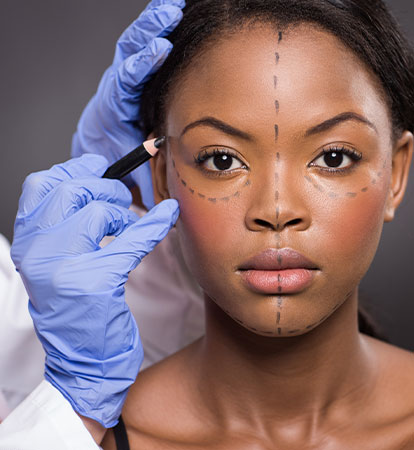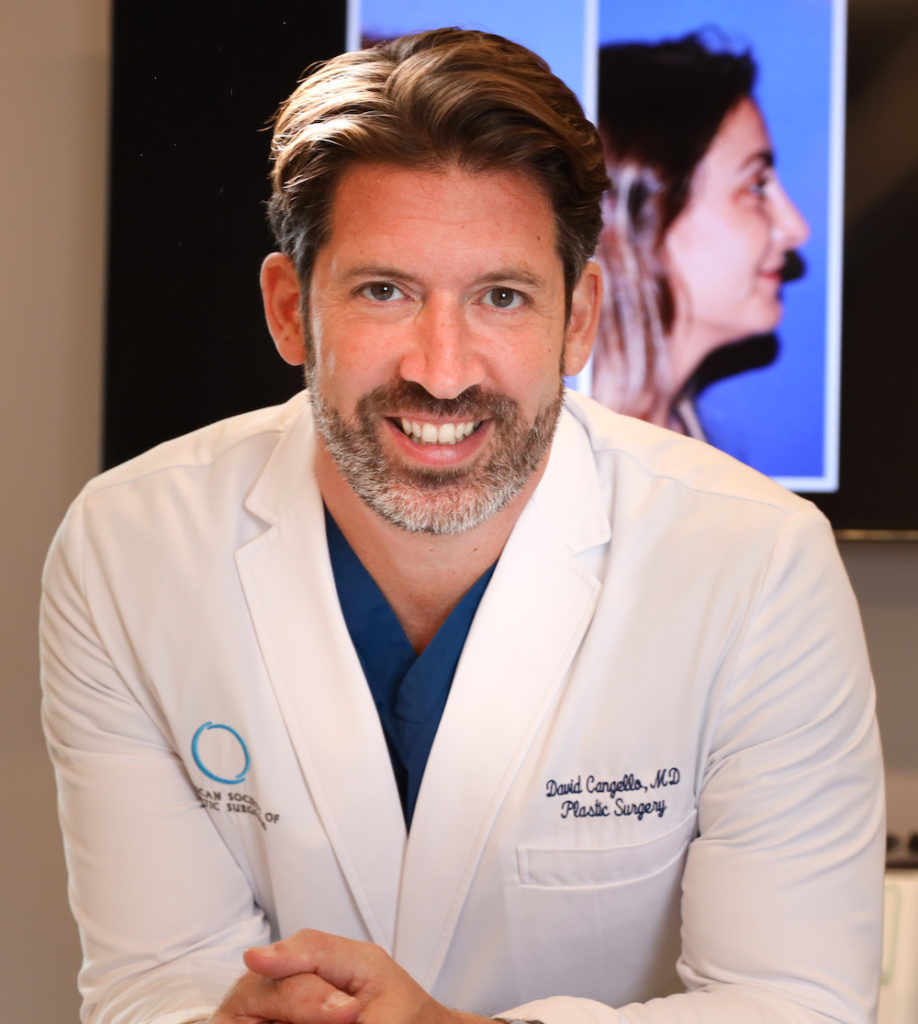Exploring the Emotional and Social Factors That Drive Individuals to Take Into Consideration Plastic Surgery as a Way of Renovation
The choice to seek plastic surgery commonly expands beyond mere aesthetic appeals, intertwining with mental and social dynamics that warrant extensive examination. Elements such as self-confidence, pervasive social appeal criteria, and the prevalent influence of social media merge to shape specific motivations for surgical improvement. As these influences end up being significantly popular, recognizing the underlying psychological and cultural contexts is vital. What remains to be explored is the profound effect these aspects have not just on personal identity yet likewise on more comprehensive social standards and worths surrounding charm and approval.
The Function of Self-confidence
Self-esteem dramatically affects a person's choice to go after plastic surgery. Individuals with low self-confidence often perceive themselves in an adverse light, leading to sensations of inadequacy concerning their physical look. This adverse self-perception can drive them to look for medical interventions as an approach of enhancing their self-image. The wish for renovation in one's appearance is often connected to a belief that such modifications will certainly elevate their total self-worth and self-confidence.

Inevitably, the function of self-confidence in the decision-making process relating to plastic surgery highlights the complicated interplay in between body image, personal complete satisfaction, and psychological health and wellness. Understanding this connection is critical for healthcare experts to ensure that individuals are making notified decisions rooted in sensible assumptions and emotional well-being.
Societal Appeal Standards
Influenced by pervasive media representations and social stories, societal beauty criteria play an important role in shaping people' perceptions of their own bodies. These criteria are often characterized by an idealized kind of elegance that highlights traits such as slimness, symmetry, and youthful vigor. As these perfects are perpetuated through numerous networks, including movie, tv, and advertising and marketing, people regularly internalize these messages, causing discontentment with their all-natural appearance.
The ramifications of these social standards expand beyond visual choices; they can affect self-worth, psychological health and wellness, and social connections. People who view themselves as dropping brief of these requirements might experience sensations of inadequacy, prompting a desire for plastic surgery as a way of achieving social authorization. This search is frequently fueled by the belief that satisfying these ideals will boost not just physical look however also social standing and personal gratification.

Impact of Social Network
The influence of societal elegance requirements is further intensified by the rise of social media platforms, where curated images and idealized representations of appeal are ubiquitous. Users are go to these guys constantly exposed to filteringed system and modified pictures, which usually depict unattainable physical attributes. This direct exposure grows a society of contrast, leading individuals to evaluate their own look versus these often impractical benchmarks.
Social media influencers and stars often promote cosmetic procedures, normalizing the idea that surgical enhancements are a sensible ways for achieving social ideals (plastic surgery rancho cucamonga). The visibility of these enhancements can create an assumption that undertaking plastic surgery is a standard method, consequently affecting individuals to think about comparable interventions as a pathway to enhanced self-esteem and social acceptance
Additionally, the interactive nature of social networks allows for prompt feedback with sort and remarks, additionally reinforcing the wish to satisfy preferred appeal standards. Such communications can intensify feelings of inadequacy and drive people towards cosmetic surgery as a way of getting validation. Ultimately, social media plays a crucial role fit understandings of beauty, which dramatically impacts the decision-making processes surrounding plastic surgery.

Cultural Point Of Views on Appearance
Across various societies, perceptions of look are deeply rooted in historic, social, and financial contexts, forming individuals' views on charm and value. In several cultures, look acts as a considerable marker of identification, influencing social standing, expert possibilities, and individual connections. For example, in some societies, light skin is commonly connected with wide range and advantage, while others might glorify darker complexion as symbols of toughness and authenticity.
In addition, conventional charm criteria are often bolstered via social stories, media depictions, and family members affects, resulting in differing perfects throughout different regions (plastic surgery rancho cucamonga). In Western cultures, the emphasis on young people and fitness often drives people toward More about the author cosmetic enhancement, while in specific Eastern cultures, even more refined changes lined up with conventional aesthetic appeals might be liked
Globalization and the proliferation of digital media have actually further made complex these dynamics, creating a hybridization of beauty suitables that transcends geographical boundaries. As people increasingly browse these social narratives, the stress to satisfy specific look standards can lead to the desire for plastic surgery, showing an intricate interaction of cultural worths and individual goals. Comprehending these cultural point of views is crucial in addressing the motivations behind plastic surgery factors to consider.
Emotional Influences of Plastic Surgery
Many individuals seeking plastic surgery report experiencing extensive psychological effects that can significantly change their self-perception and emotional wellness - plastic surgery rancho cucamonga. The desire for physical improvement typically stems from underlying issues such as low self-esteem, body dysmorphic disorder, or social pressures concerning beauty criteria. For some, the instant post-operative stage can result in a temporary boost in self-esteem and fulfillment with their appearance, promoting a sense of empowerment
However, these favorable sensations may not be enduring. Research suggests that while some people experience boosted self-confidence, others may encounter intense anxiety or depression if their expectations are not fulfilled. This inconsistency can arise from impractical ideals continued by media representation and social stories bordering appeal.
Moreover, the mental ramifications of cosmetic surgical procedure prolong past the person. Relationships with household and buddies might be strained as social characteristics change, bring about feelings of isolation or alienation. Ultimately, the psychological impacts of plastic surgery are complex and complex, needing mindful factor to consider by both possible people and medical care providers to make certain informed decision-making and reasonable expectations.
Verdict
To conclude, the decision to go after cosmetic surgical procedure is substantially affected by a combination of self-confidence concerns, societal charm requirements, and cultural perspectives on look. The prevalent reach of social networks even more intensifies these stress, promoting impractical suitables that individuals often strive to acquire. Understanding these social and mental factors is necessary for addressing the motivations behind cosmetic surgery, highlighting the demand for an extra nuanced conversation bordering beauty and self-acceptance in modern society.
The decision to pursue cosmetic surgery typically expands past plain visual appeals, intertwining with emotional and social characteristics that merit extensive evaluation. Inevitably, social media plays a crucial duty in forming understandings of beauty, Website which substantially affects the decision-making processes surrounding cosmetic surgical treatment.
As individuals progressively navigate these social stories, the pressure to adjust to details appearance criteria can lead to the need for cosmetic surgical treatment, showing a complicated interaction of social worths and individual ambitions.In conclusion, the choice to seek cosmetic surgery is considerably affected by a combination of self-esteem problems, social appeal criteria, and social viewpoints on look. Comprehending these social and mental variables is essential for addressing the motivations behind cosmetic surgical procedure, highlighting the need for an extra nuanced discussion bordering appeal and self-acceptance in modern society.